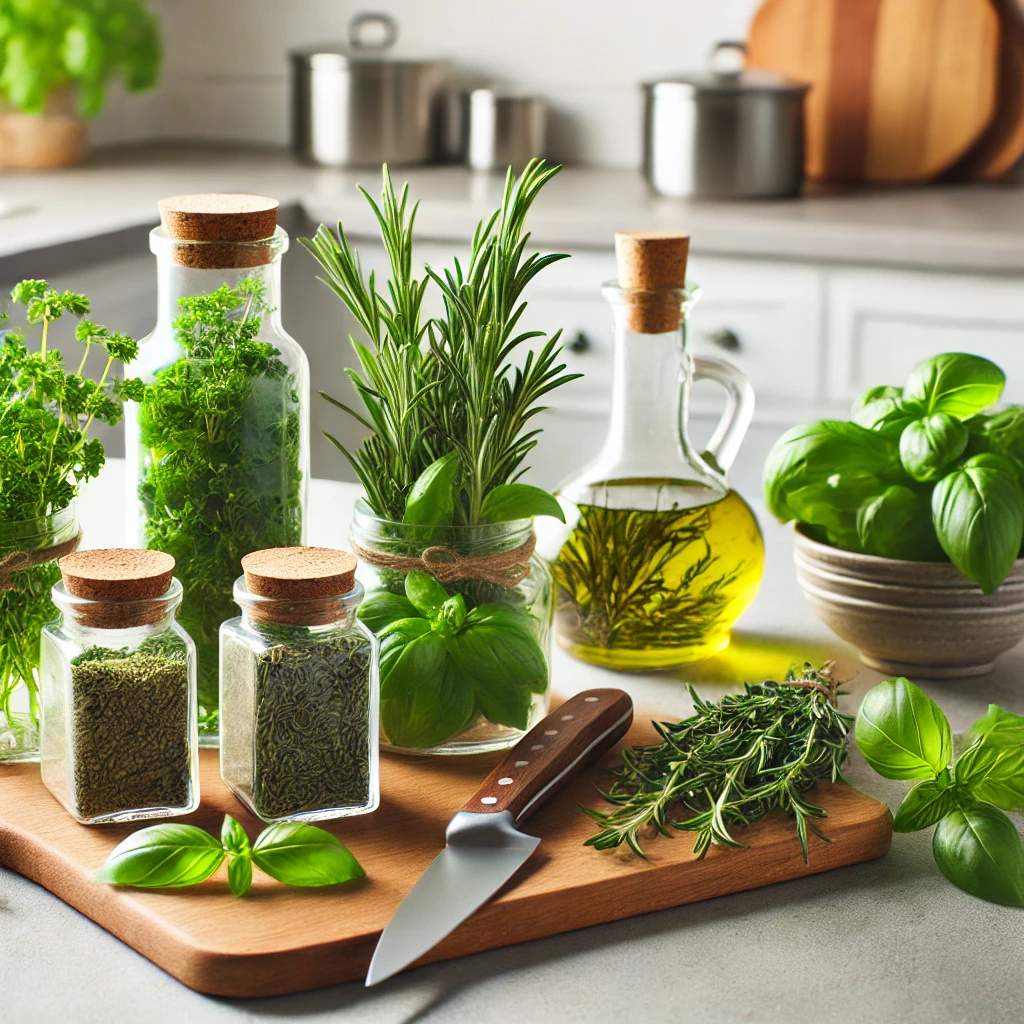Fresh herbs add vibrant flavors, aromas, and a touch of elegance to any dish. Knowing how to use and store them can make a world of difference in your cooking. Here’s a guide to help you get the most out of fresh herbs, from enhancing flavors to keeping them fresh for longer.
1. Know When to Add Herbs
- Soft herbs like basil, cilantro, and parsley have delicate flavors that are best when added at the end of cooking. This preserves their bright, fresh taste.
- Hardy herbs like rosemary, thyme, and sage have stronger flavors that can handle longer cooking times. Add them early in the cooking process for maximum flavor release.
2. Pair Herbs with Ingredients
- Basil: Great with tomatoes, garlic, and cheese—perfect for Italian dishes.
- Rosemary: Pairs well with roasted meats, potatoes, and hearty vegetables.
- Cilantro: Complements citrus flavors, avocado, and spicy dishes.
- Dill: Pairs wonderfully with fish, potatoes, and creamy sauces.
3. Store Herbs Properly
- Soft Herbs (basil, cilantro, parsley): Trim the ends and place them in a glass of water like a bouquet. Cover loosely with a plastic bag and refrigerate (except for basil, which prefers room temperature).
- Hardy Herbs (rosemary, thyme, sage): Wrap them in a damp paper towel, place them in a sealed plastic bag, and store in the fridge. This keeps them fresh for up to two weeks.
4. Chop Herbs Correctly
- Use a sharp knife to avoid bruising delicate herbs. For leafy herbs like basil or mint, stack the leaves, roll them, and slice thinly in a technique called chiffonade.
- For smaller herbs like thyme or rosemary, strip the leaves from the stem and give them a quick chop.
5. Freeze Extra Herbs for Later Use
- For herbs you can’t use right away, freezing is a great option. Chop them finely, place them in ice cube trays, and cover with olive oil or water. Freeze and transfer to a sealed bag for easy portions of fresh herbs all year.
6. Experiment with Herb-Infused Oils and Butters
- Create herb-infused oils by adding fresh sprigs of herbs like rosemary or thyme to olive oil. Let it sit for a few hours or days for subtle flavor.
- Herb-infused butter is easy to make: mix chopped herbs into softened butter, then refrigerate. Perfect for adding a burst of flavor to grilled meats, vegetables, or bread.
7. Garnish with Fresh Herbs
- A sprinkle of fresh herbs on top of a dish just before serving not only adds flavor but also enhances the presentation. Try garnishing with parsley, cilantro, or chives to make your dishes look and taste fresher.
Quick Reference Guide to Cooking with Herbs
| Herb | Cooking Stage | Best Pairings |
|---|---|---|
| Basil | End of cooking | Tomatoes, garlic, cheese |
| Rosemary | Beginning of cooking | Meats, potatoes, hearty vegetables |
| Cilantro | End of cooking | Citrus, avocado, spicy dishes |
| Thyme | During cooking | Soups, stews, roasted meats |
| Dill | End of cooking | Fish, potatoes, creamy sauces |
| Parsley | Garnish | Almost anything! Adds a fresh finish. |

